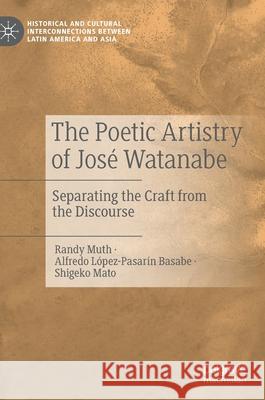The Poetic Artistry of José Watanabe: Separating the Craft from the Discourse » książka
topmenu
The Poetic Artistry of José Watanabe: Separating the Craft from the Discourse
ISBN-13: 9783030816148 / Angielski / Twarda / 2021 / 170 str.
Kategorie:
Kategorie BISAC:
Wydawca:
Palgrave MacMillan
Seria wydawnicza:
Język:
Angielski
ISBN-13:
9783030816148
Rok wydania:
2021
Wydanie:
2021
Numer serii:
001127411
Ilość stron:
170
Waga:
0.38 kg
Wymiary:
21.01 x 14.81 x 1.27
Oprawa:
Twarda
Wolumenów:
01
Dodatkowe informacje:
Wydanie ilustrowane











